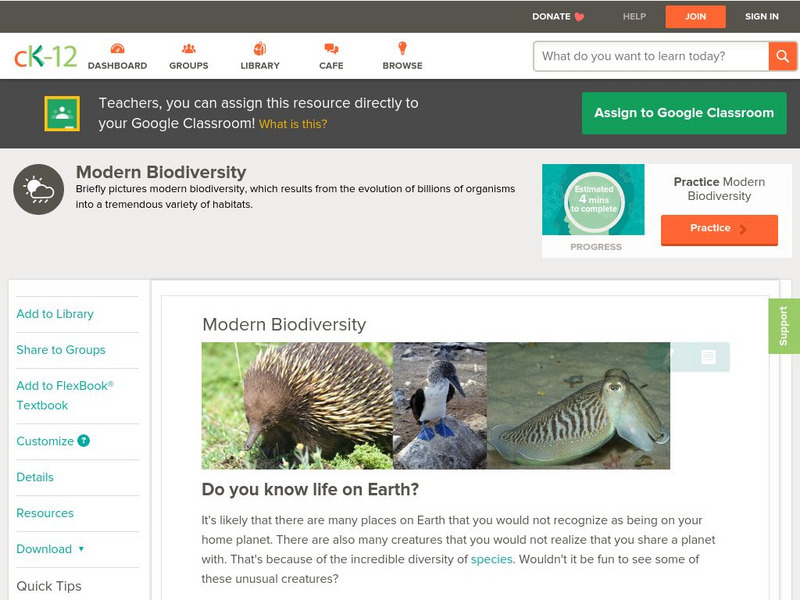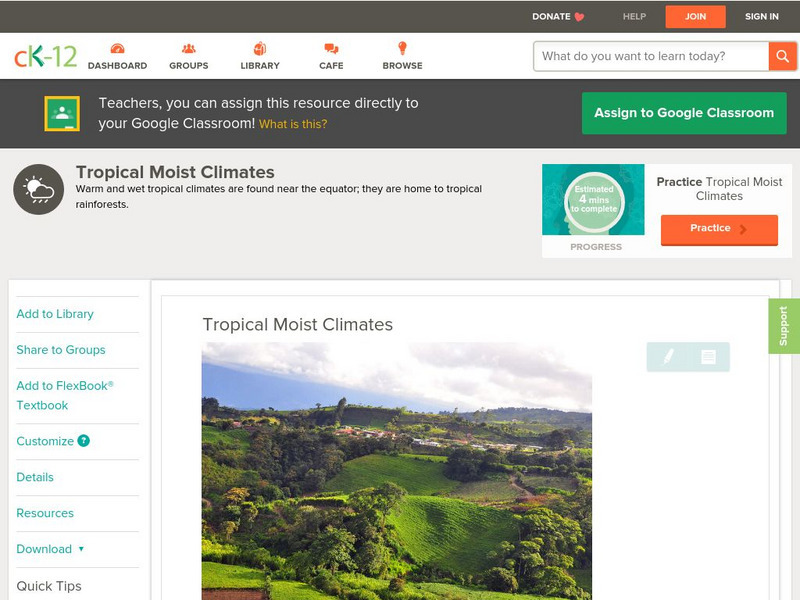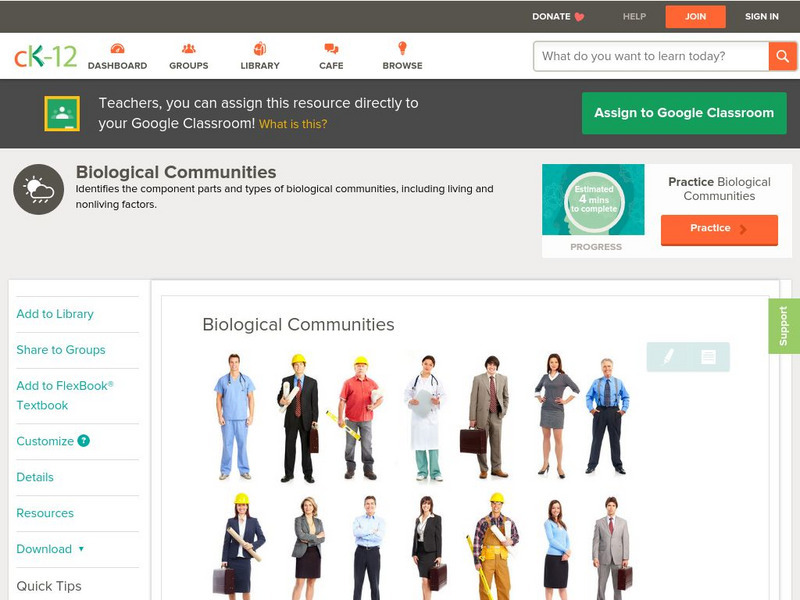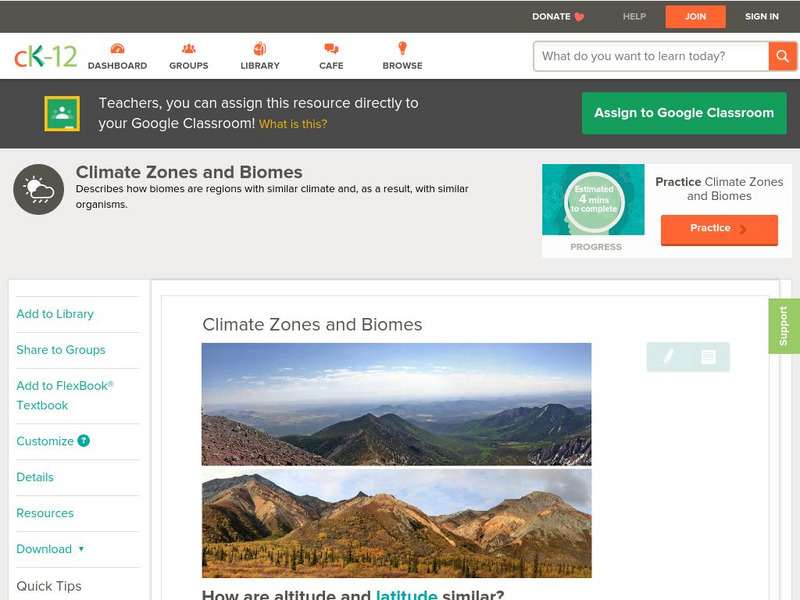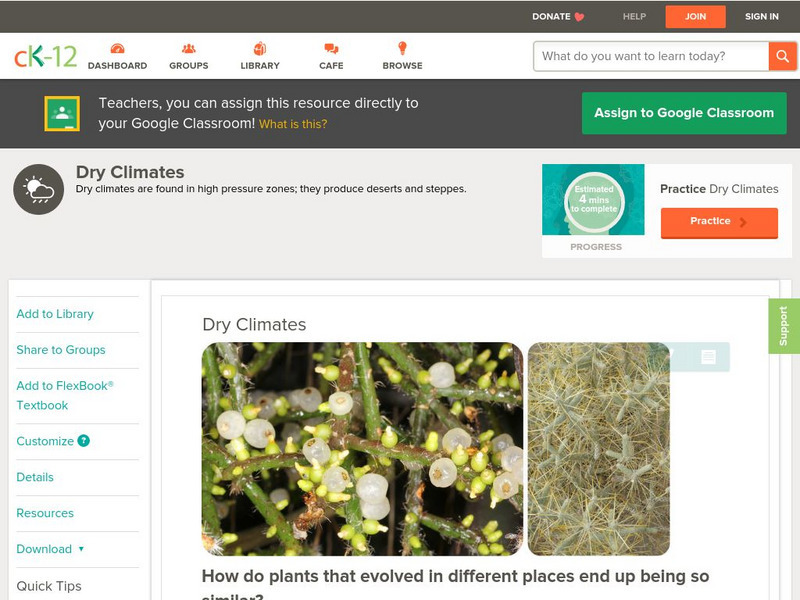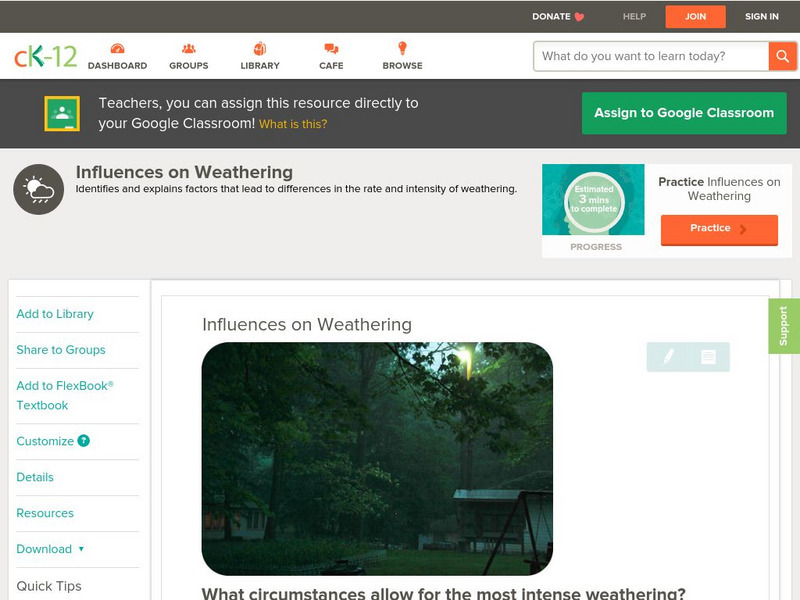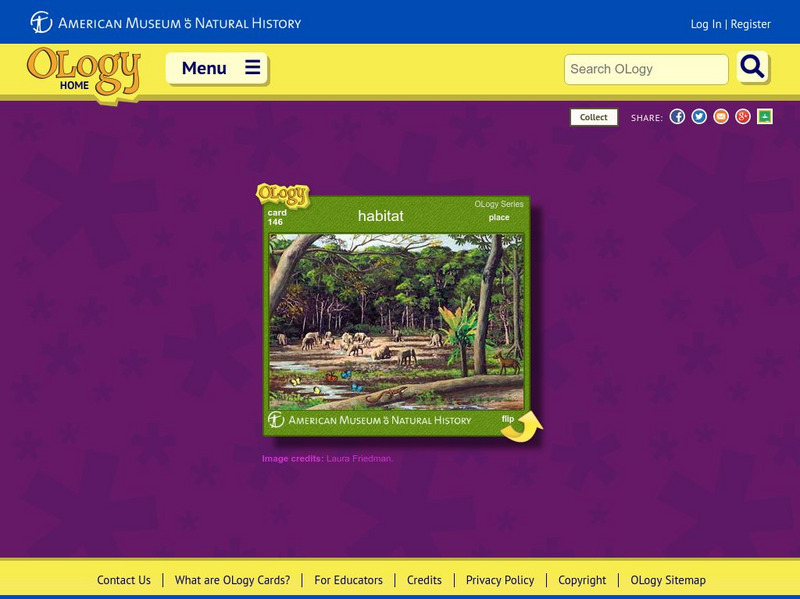Other
College of Du Page: Energy in an Ecosystem
Ecosystems contain two kinds of commodities: matter (nutrients) and energy. Nutrients cycle through the ecosystem, available for repeated use by organisms. These cycles of use and reuse are called biogeochemical cycles. Energy instead is...
Other
Cartage: Mangrove Habitats
This thorough resource lists the features that all mangrove trees have in common, the types of organisms we may find in a mangrove community, and the three most common mangrove trees.
Other
Cartage: Salt Marsh Habitats
This resource provides a thorough examination of salt marshes and the grasses, plant species, and animal species that inhabit these areas.
US Geological Survey
Lake Pontchartrain Basin Foundation: Ecosystems in Delicate Balance
Learning activities to investigate how organisms interact in a functioning ecosystem. Students will explore the role organisms play in food chains and preserving biodiversity in ecosystems. Lake Pontchartrain Basin ecosystem is featured...
McGraw Hill
Glencoe Biology: Terrestrial Biomes: Self Check Quiz
Try these five multiple-choice review questions over terrestrial biomes. A self-checking feature is available for students who seek further review.
Morning Earth
Biosphere as Place: Terrestrial Biomes
Students investigate the Biology topic of biomes. The tutorial consists of definitions, pictures, and examples of different terrestrial biomes.
Other
Caesar Kleberg Wildlife Research Institute: Native Habitat Restoration [Pdf]
This presentation explains why it is important to do restoration of a habitat. It explains what to expect, developing a plan, where to get help, assess the area, preparing the soil, choosing and planting seeds, managing the habitat as it...
Scholastic
Scholastic: Study Jams! Science: Ecosystems
A video and a short multiple-choice quiz on the topic of ecosystems, covering biotic and abiotic factors, and the roles organisms play in an ecosystem.
Cynthia J. O'Hora
Mrs. O's House: Habitat Project Digital Science Journal
Develop a digital story to illustrate and inform others about different habitats or ecosystems. Resources for building a digital story are provided.
CK-12 Foundation
Ck 12: Earth Science: Modern Biodiversity
[Free Registration/Login may be required to access all resource tools.] How diverse Earth's organisms are today.
CK-12 Foundation
Ck 12: Earth Science: Polar Climates
[Free Registration/Login may be required to access all resource tools.] Describes polar climates such as the polar and alpine tundras.
CK-12 Foundation
Ck 12: Earth Science: Temperate Climates
[Free Registration/Login may be required to access all resource tools.] Describes characteristics of temperate climates.
CK-12 Foundation
Ck 12: Earth Science: Tropical Moist Climates
[Free Registration/Login may be required to access all resource tools.] Describes characteristics of tropical climates.
CPALMS
Florida State University Cpalms: Florida Students: Where Have All the Scrub Jays Gone?
Learn how organisms rely on one another but also compete with one another within the same ecosystem.
NASA
Climate Kids: 10 Interesting Things About Ecosystems
Discover 10 interesting things about ecosystems, including features of coral reefs, rainforests, deserts, grasslands, freshwater ecosystems, the tundra, the ocean floor, wetlands, boreal forests and big cities.
University of Utah
University of Utah: Genetic Science Learning Center: Meet the Microenvironments
Investigate the Great Salt Lake's islands, rivers, and man-made structures that define several diverse microenvironments.
TeachEngineering
Teach Engineering: Environments and Ecosystems
Students explore the biosphere and its associated environments and ecosystems in the context of creating a model ecosystem, learning along the way about the animals and resources. Students investigate different types of ecosystems, learn...
CK-12 Foundation
Ck 12: Earth Science: Biological Communities
[Free Registration/Login may be required to access all resource tools.] Provides an overview of biological communities.
CK-12 Foundation
Ck 12: Earth Science: Climate Zones and Biomes
[Free Registration/Login may be required to access all resource tools.] Describes how regions with similar climates are grouped into climate zones and biomes.
CK-12 Foundation
Ck 12: Earth Science: Dry Climates
[Free Registration/Login may be required to access all resource tools.] Describes dry climates such as the desert and steppe.
CK-12 Foundation
Ck 12: Earth Science: Influences on Weathering
[Free Registration/Login may be required to access all resource tools.] Variables that affect the rate of weathering.
CK-12 Foundation
Ck 12: Earth Science: Influences on Weathering
[Free Registration/Login may be required to access all resource tools.] Variables that affect the rate of weathering.
CK-12 Foundation
Ck 12: Earth Science: Introduction to Weather
[Free Registration/Login may be required to access all resource tools.] Covers the definition of weather and the factors that make up weather.
American Museum of Natural History
American Museum of Natural History: Habitat O Logy Card
Flip this interactive OLogy card to find fast facts, questions and answers, and other bite-size pieces of information about the meaning of habitat, as a scientific concept, and learn why habitat is so important to plants and animals.







